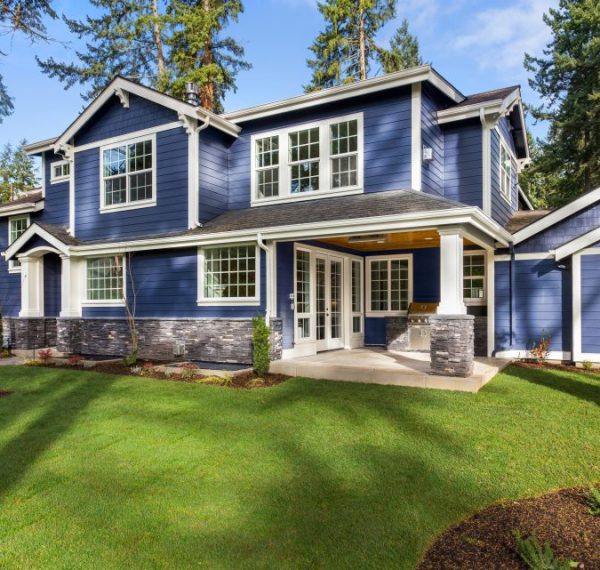I just closed one of my latest listings in Santa Clara. A small home in a quiet Santa Clara neighborhood. The homes in that particular neighborhood were designed with wall furnaces. Not very common in some areas but homes like these are still out there. One of the first things buyers often ask is what it would take to put in central heating and air conditioning.
Typically about $5,000 is what I tell them, but that will vary from home to home. Fortunately, this particular seller had central forced air heating. It was done by the owner prior to him and just this past year he replaced the furnace in the system.
One of the things the seller neglected to do is make sure a permit was taken out for the new furnace. What made matters worse, when he bought the property he didn’t check to see if the previous owner had secured a permit for installing the system and to the surprise of the current owner he didn’t.
People don’t realize this, but many cities in the area will request that permits be applied for and taken out for many repair items on a home. Even a toilet replacement in some cities, including Santa Clara, require the use of permits. Permits can be applied for at any city planning office, and are relatively inexpensive. What permits are designed to do is ensure that work complies with the city code, and these codes are generally concerned with public safety. Regardless of who you hire the responsibility of taking out the permit falls with the owner. So as an owner you really have to make sure your contractor is doing things by the book and at the end of the job you’ll want to see that the permit was finalized.
You might ask yourself if it’s really worth the hassle of getting a permit. Maybe your friend works under a contractor and doesn’t have his license but he assures you he knows how to do the job and that you don’t need a permit. The reality is if you never do any significant remodeling, and the work is inside, a city inspector may never realize that you have unpermitted work and will likely never hassle you.
However, this problem will eventually haunt you when you sell the home or do a major home renovation. You see, when you sell a home you have to disclose all the work that you have ever done to the home, and whether or not you have documentation for the work or a permit. Easy enough, you just disclose and say that you replaced the furnace and that you didn’t get a permit for the work. That should let you off the hook.
Some buyers and agents may think nothing of it and feel that permits are nothing but city government putting their hands in the pockets of residents. However, a good and responsible buyer or agent will see a bright red flag.
You see, if anyone down the road wants to do some work that will require a permit, maybe an addition, or put in air conditioning, or even replace the roof, (required in some cities) and the city inspector notices that you have a forced air heating system in your home, but the city documents clearly say wall furnace. Well, that inspector may want to have a closer look and before he signs off any work on your home he will want to make sure that the furnace is permitted.
Once the inspector concludes that the heating system was unpermitted, he will request that you go down to the planning office and apply for a permit and begin the retro-permitting process. Retro permits generally cost a bit more than regular permits. Also, to apply for a permit you need to get plans and submit them. If you know how to draw up plans for HVAC, electrical, and plumbing, then that wouldn’t be a problem, but generally, those are not skills that we all possess. So, you convince your buddy to draw up the plans or pay another contractor to do that for you. You go down to the city planning office and meet with the planner. He approves your plans, you pay the permitting fees, and you schedule an inspection.
The city inspector comes out to the property and looks at the installation. Now, if this installation was done relatively recently and by a qualified individual, this may go fairly smoothly, but chances are that both those assumptions are false, and the inspector has pointed out a number of violations and items that are no longer up to code. Those items will have to be addressed and resolved before the inspector signs off on anything.
For something like the cost of repairing a furnace, these items may not exceed $500 to repair. With more complicated issues, like pools and additions, these can get rather pricey. Don’t forget about the time you will need to take to get these matters resolved, time and money you could have saved if you had just got a permit or made sure the item was permitted when you bought the home.
Back to the story about the home I sold in Santa Clara. When the buyer discovered the central heating system was not permitted, immediately this set off a number of problems, especially since she was planning to put in an air conditioning system. In the end, we had to contact several heating and cooling services to determine if there were any issues. Fortunately for my seller, there were not too many issues with the current installation that had to be addressed and the buyer really wanted the home. In the end, my seller agreed to credit the buyer $300 for the repairs, but the cost and time spent on getting the issue resolved could have been much worse.
So, buyers and homeowners, make sure you get permits for those items that require them, it will save you loads of hassle and costs in the future.





